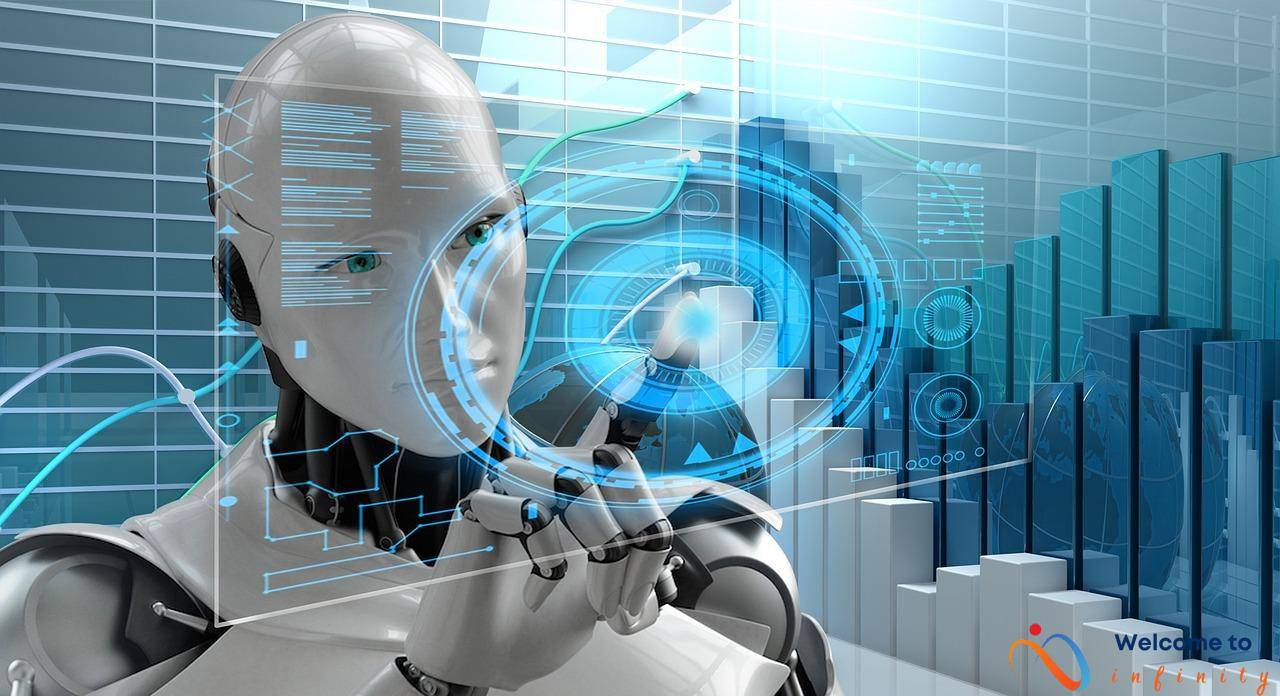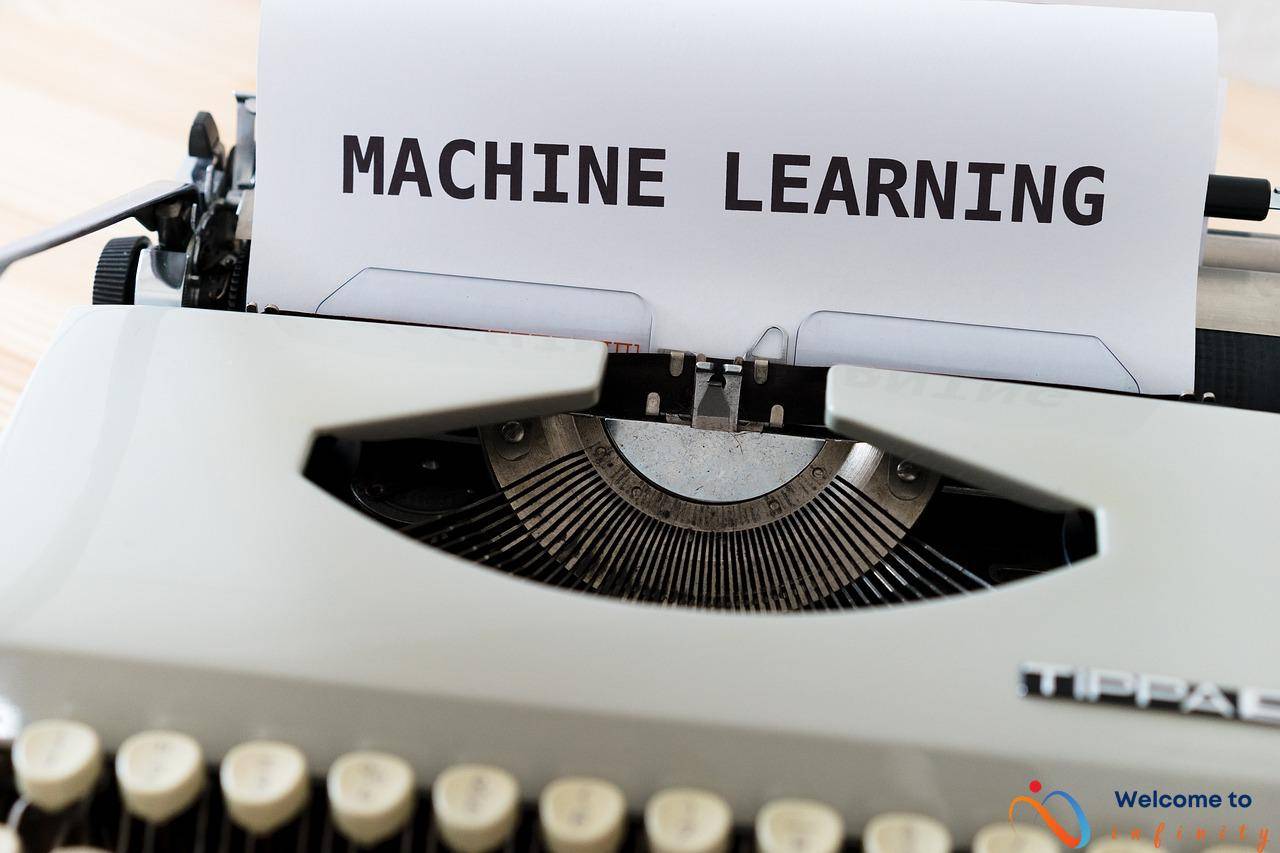In today's fast-paced world, it is essential to keep up with the latest technological advancements. One such advancement is Artificial Intelligence (AI), which has revolutionized various industries in recent years. Biotechnology is one such field where the role of AI has become increasingly vital in accelerating research and development. With AI tools and techniques, researchers can process vast amounts of data, identify patterns, and gain insights that would be difficult to spot using traditional methods. This has led to the development of innovative therapies and treatments, contributing to medical breakthroughs.
AI is used for various biotech applications, such as drug discovery, clinical trials, and personalized medicine. The use of AI in drug discovery has been particularly useful, where researchers can find new drug candidates, predict potential success, and identify new leads for drug discovery. Additionally, AI can help develop personalized treatments for patients based on their genetic makeup, optimizing treatment efficacy while reducing medication side effects. Clinical trials can be streamlined using AI, where researchers can identify patients most likely to respond to a specific treatment and monitor patients in real-time, providing valuable data insights and improving accuracy and safety.
Despite the potential benefits of AI in biotech, there are significant challenges and limitations that researchers must overcome. Ethical issues, data privacy, and making sense of complex data are some of the significant challenges that researchers face. The use of sensitive patient data in AI applications raises concerns about data handling, while the vast amount of data generated by biotech research makes it challenging to identify relevant patterns and insights.
Despite the challenges, the future of AI in biotech is promising, providing new opportunities for medical breakthroughs and personalized treatments. It is essential to find solutions to overcome the challenges presented by AI so that researchers can continue to advance medical science and develop innovative therapies that positively impact people's lives.
Applications of AI in Biotech
Artificial Intelligence (AI) is being used extensively in the field of biotech, with numerous applications across a wide range of areas. One of the most significant benefits of AI in biotech is the ability to achieve quicker and more precise results, which can lead to faster breakthroughs and new therapies and treatments.
One of the key areas where AI is being utilized in biotech is drug discovery. machine learning algorithms can sift through large amounts of data to identify new drug candidates and predict their potential success before clinical trials even begin. Additionally, AI-powered tools can simulate the interactions between drug candidates and target molecules, allowing researchers to identify new leads for drug discovery more efficiently.
AI is also being used to enable more personalized medicine, with treatments being developed based on an individual's unique genetic makeup. Predictive models can be created to identify the best course of treatment for individual patients, based on their genetic data and medical history. AI-powered diagnostic tools can analyze patient data to make diagnoses quicker and more accurate.
Clinical trials can also benefit from AI, with algorithms being used to identify which patients are most likely to respond to a particular treatment. This can help researchers find effective treatments while reducing the risk of side effects. Real-time monitoring and data analytics can also improve the accuracy and safety of clinical trials.
Overall, AI has enormous potential in the field of biotech, enabling new opportunities for medical breakthroughs and personalized treatments that will transform the field of medicine.
The benefits of AI in Biotech
The application of AI technology in biotech research offers significant benefits to the field of medicine. One major advantage is the ability to quickly process vast amounts of data and identify patterns that would be difficult to spot through traditional methods. The insights gained from this data analysis can help researchers develop innovative therapies and treatments at an accelerated pace, ultimately benefiting patients worldwide.
Drug discovery, clinical trials, and personalized medicine are some of the areas where AI has had the most notable impact. Machine learning algorithms can predict how a drug will work in the human body, helping researchers determine the drug's potential efficacy before beginning clinical trials. They can also simulate the interactions between drug candidates and target molecules, making it easier to identify new leads for drug discovery.
| Applications of AI in Biotech | Benefits |
|---|---|
| Drug Discovery | Allows faster identification of potential drug candidates and predicts their success |
| Personalized Medicine | Creates personalized treatments and reduces side effects of medication |
| Clinical Trials | Streamlines clinical trials and helps identify effective treatments |
Another benefit of AI technology is its ability to develop personalized treatments based on an individual's genetic makeup. By analyzing genetic data and medical history, predictive models can identify the most effective course of treatment for an individual patient. Additionally, AI-powered diagnostic tools can analyze patient data and identify potential medical conditions more accurately and efficiently.
All in all, AI technology's ability to process and analyze complex data has the potential to transform the field of biotech. The benefits of AI in biotech are immense, and it offers new opportunities for medical breakthroughs and personalized treatments that will ultimately help patients worldwide.
Drug Discovery
AI plays a significant role in drug discovery by helping scientists find new drug candidates, analyzing vast amounts of data, and predicting the potential success of a drug before clinical trials begin. With the power of machine learning algorithms, AI can quickly mine through massive datasets to uncover patterns and trends that humans may miss, enabling researchers to identify molecules that have the potential to become new drugs.
One of the ways AI can assist in drug discovery is through virtual screening. This method uses computational tools to simulate the interactions between molecules and target proteins, making it possible to identify potential drug leads. AI algorithms can also predict the characteristics of a compound, such as its pharmacological properties and suitability for clinical use, thereby helping researchers decide which molecules to pursue and which to discard.
Another way AI helps in drug discovery is through predictive modeling. Machine learning models can be trained on data from previous clinical trials to predict the potential success of a new drug candidate. This ensures that only compounds with high chances of success are taken to clinical trials, saving time, money, and resources.
Thanks to AI's ability to process vast amounts of data and identify hidden patterns, scientists can now fast-track the drug discovery process, leading to faster development of treatments, cures, and therapies for various diseases.
Machine Learning
AI-powered machine learning algorithms are making it easier to understand how different drugs interact with the human body. Researchers can train these models to predict the outcome of clinical trials, which not only saves valuable time and resources but also helps determine the potential benefits of a new drug.
Machine learning models scrutinize vast amounts of data about the drug's composition and its expected interaction with biological systems, making predictions about its efficacy and role as a potential treatment. Predictive modeling helps identify the right candidates for clinical trials, as well as testing different formulations to determine the most effective way to administer a drug.
The models designed for machine learning algorithms are versatile enough to analyze different sets of data, which means researchers can not only predict the success of new drugs but also identify patterns in datasets related to existing drugs. This can lead to discovering new medical insights that can be used to improve current treatments or develop entirely new ones.
Overall, machine learning is proving to be a powerful tool in biotech research. It expedites drug discovery by predicting the success of potential treatments, identifying new uses for existing drugs and helping design trials that can deliver real-world results faster and with greater accuracy. As machine learning models continue to evolve, the possibilities of what AI can achieve in the field of biotechnology are endless.
Virtual Screening
Virtual screening is a critical process in drug discovery, and AI has made it more accurate and efficient than ever before. By simulating the interactions between drug candidates and target molecules, AI-powered tools can identify new leads for drug discovery, saving time and reducing costs.
Virtual screening tools use machine learning algorithms to analyze vast quantities of data and identify promising drug candidates. These algorithms can be trained on large databases of compounds and their properties, allowing researchers to quickly filter through thousands of molecules to identify the most promising candidates.
AI-powered virtual screening tools can also help researchers identify potential side effects of drug candidates early in the drug development process. By simulating how a drug interacts with various biological targets and pathways, researchers can identify potential safety concerns and work to address them before the drug enters clinical trials.
Overall, virtual screening is an essential application of AI in biotech, enabling researchers to identify new leads for drug discovery, evaluate potential side effects early in the development process, and guide the selection of candidates for clinical trials.
Personalized Medicine
Personalized medicine is a rapidly growing field, and AI technology is playing a crucial role in advancing this area of biotech research. By analyzing an individual's genetic makeup, AI algorithms can identify treatments that are most likely to be effective and minimize the risk of side effects.
One of the key benefits of personalized medicine is that it allows for more precise and targeted treatments compared to a one-size-fits-all approach. With the help of AI, medical professionals can analyze an individual's genetic data and develop personalized treatment plans that are tailored to their specific needs. This approach can lead to better treatment outcomes, improved patient satisfaction, and reduced healthcare costs.
Another important application of AI in personalized medicine is the development of diagnostic tools. AI-powered systems can analyze patient data, including genomic information, to identify potential health risks and diagnose medical conditions with greater accuracy. By automating many aspects of the diagnostic process, AI can allow for faster and more efficient healthcare delivery.
Overall, the combination of AI and personalized medicine has the potential to revolutionize the way we approach healthcare. By leveraging the power of data analytics, medical professionals can gain new insights into disease biology and develop more targeted treatments. As technology continues to advance, we are likely to see even more breakthroughs in this exciting field.
Predictive Modeling
The use of predictive modeling in biotech has immense potential for revolutionizing personalized medicine. Predictive models use AI to analyze large amounts of data, including a patient's genetic data and medical history, to identify the most effective treatment options for individual patients. This form of personalized medicine can improve treatment efficacy and reduce the potential for serious side effects by optimizing the course of treatment for each patient.
In addition to providing more accurate treatment options, predictive modeling can also reduce the cost of care. By identifying the most effective treatments for each patient, healthcare providers can avoid the need for expensive trial-and-error processes that often result in ineffective treatments and additional healthcare costs.
The use of predictive modeling in biotech is not without challenges, however. The sheer volume of data generated by biotech research requires sophisticated algorithms to identify the most relevant patterns and insights. As a result, it is critical to invest in powerful computing resources and to develop sophisticated data analysis techniques to maximize the potential of this technology.
Despite these challenges, the promise of predictive modeling in biotech is too great to ignore. This technology has the potential to revolutionize personalized medicine, providing better treatment options, reducing healthcare costs, and improving patient outcomes. As biotech continues to evolve and develop, predictive modeling will undoubtedly play an increasingly important role in advancing medical breakthroughs and improving healthcare outcomes for patients around the world.
Diagnostic Tools
The use of AI in diagnostic tools has revolutionized the way medical professionals identify and diagnose diseases. AI-powered diagnostic tools can analyze vast amounts of patient data to uncover patterns and correlations that can be difficult for the human eye to detect. With its ability to process data quickly and accurately, AI has the potential to make diagnoses quicker and more accurate, improving patient outcomes and saving lives.
One significant advantage of AI-powered diagnostic tools is its ability to recognize and diagnose rare diseases. Rare diseases often go undiagnosed due to their low prevalence and the difficulty in diagnosing them. With AI-powered diagnostic tools, these diseases can be identified more accurately and efficiently, and patients can receive proper treatment.
AI-powered diagnostic tools gather patient data from various sources, including medical records, lab test results, and patient histories, and analyze it to identify potential medical conditions. The tools can use machine learning algorithms and predictive modeling to consider all possible diagnoses, identify the most likely one, and suggest treatment options.
Diagnostic tools powered by AI have the potential to reduce diagnostic errors and misdiagnoses, which are costly and can lead to devastating patient outcomes. By analyzing large amounts of data, these tools can provide a more accurate diagnosis, resulting in a quicker treatment plan.
With its ability to analyze complex data sets quickly and accurately, AI has the potential to transform how diseases are diagnosed and treated. As AI-powered diagnostic tools continue to advance, they will play an essential role in improving patient outcomes and transforming the field of medicine.
In conclusion, AI-powered diagnostic tools can analyze patient data and identify potential medical conditions to make diagnoses quicker and more accurate, improving patient outcomes and revolutionizing healthcare. With the continued development and advancement of AI technology, the future of medical diagnosis and treatment looks promising.
Clinical Trials
One of the most significant applications of AI in biotech is in streamlining clinical trials. By using AI, researchers can quickly identify which patients are most likely to respond to a particular treatment, which can significantly reduce the risks associated with clinical trials.
One of the ways in which AI helps researchers streamline clinical trials is by using predictive modeling. Predictive models can identify the best course of treatment for individual patients based on their genetic data and medical history, making it easier for researchers to find effective treatments and minimize side effects.
Another way that AI is used in clinical trials is through patient selection. AI-enabled algorithms can identify the patients who are most likely to respond to a new treatment based on their previous medical history and genetic makeup. This can significantly reduce the time and cost associated with clinical trials.
Real-time monitoring is another area where AI is making significant strides in clinical trials. AI-powered technologies can monitor patients in real-time and provide researchers with valuable data insights, improving the accuracy and safety of clinical trials.
Overall, the use of AI in clinical trials has the potential to significantly improve the efficiency and effectiveness of medical research, leading to breakthrough therapies and treatments that can transform the field of medicine.
Patient Selection
One of the significant benefits of AI in biotech is its ability to identify patients who are more likely to respond positively to a particular treatment. AI-enabled algorithms can analyze vast amounts of patient data, including medical history and genetic makeup, to identify individuals who are most likely to benefit from a new therapy.
This is particularly useful in cases where a treatment has shown promise in clinical trials, but its effectiveness in a broader population is not yet clear. By using AI to select patients who are more likely to respond positively to a new treatment, researchers can speed up the development and approval process, ensuring that the therapy is available to those who need it as soon as possible.
Moreover, AI algorithms can take into account various factors that can influence treatment efficacy, such as age, gender, lifestyle, and other medical conditions. This customization of treatment not only ensures better outcomes for patients but also reduces the risk of side effects, making the treatment safer.
AI-powered patient selection algorithms have the potential to revolutionize medical research, enabling the development of more personalized treatments that better suit individual needs.
Real-Time Monitoring
One of the significant benefits of AI in biotech is the ability to monitor patients in real-time during clinical trials. AI-powered technologies can assess patient data constantly and provide researchers with insights that can improve the safety and accuracy of clinical trials. By tracking various parameters, including heart rate, blood pressure, and temperature, AI-enabled monitoring systems can identify changes in the patient's health and provide real-time feedback to researchers, reducing the risk of adverse events.
Real-time monitoring is particularly useful in cases where patients are taking multiple medications or have complex medical conditions. By continually tracking patient data, AI algorithms can adjust dosages, monitor side effects, and ensure that patients receive the appropriate treatment, improving the overall safety of the clinical trials.
Moreover, AI-powered real-time monitoring can help researchers detect potential issues or safety concerns early on, improving the chances of addressing them before they become significant problems. With AI's help, researchers can more accurately predict how patients will respond to treatments, improving the chances of developing effective therapies and bringing them to market faster.
In conclusion, AI-based real-time monitoring has the potential to transform clinical trials, improving outcomes for patients and leading to more efficient drug development processes. By providing researchers with valuable insights and improving the accuracy and safety of clinical trials, AI is poised to drive the next generation of medical breakthroughs.
Challenges and Limitations of AI in Biotech
As with any new technology, AI in biotech faces several challenges and limitations that need to be addressed. One of the primary concerns is the ethical use of sensitive patient data. The use of AI in biotech requires vast amounts of data, including genetic information and medical records, which must be handled with care and confidentiality to prevent privacy breaches.
Another challenge is the difficulty in making sense of complex data. Biotech research generates an enormous volume of data, which can be overwhelming for researchers. AI algorithms and machine learning can help with this issue, but the challenge of sifting through and understanding data remains.
Furthermore, the use of AI in biotech raises ethical concerns around the potential for discrimination, misuse, and unintended consequences. There are concerns regarding the accuracy of predictive models and the potential for AI algorithms to exacerbate existing social and economic inequalities. These concerns must be addressed through careful regulation and ethical guidelines.
Despite these challenges, the potential benefits of AI in biotech are enormous. With the right regulatory framework, data privacy protections, and ethical guidelines, AI can help revolutionize the field of biotech research and development, bringing new treatments and therapies to patients in need.
Ethical Concerns
The integration of AI in biotech has been a game-changer in the field of healthcare, but it is not without ethical concerns. One of the most important issues is data privacy. As AI requires sensitive patient data, there's a potential breach of privacy, causing alarm among patients and medical professionals. Therefore, robust data protection regulations are necessary to ensure data confidentiality.
Another concern is the potential for discrimination. AI-powered tools can process vast amounts of data and may unconsciously discriminate against certain groups, such as race or socioeconomic status. To address this issue, AI algorithms need to be developed with a focus on fairness.
Misuse of AI in biotech is also a big concern, as the technology can be weaponized. In the past, we have seen instances of state-sponsored actors using personal data to affect political elections. Therefore, it is crucial to have strict regulations on the use of AI and how organizations store and use data.
To sum up, AI has the potential to revolutionize biotech, but it is important to consider the ethical implications. As AI-powered tools become more prevalent, we need to ensure that we address concerns surrounding data privacy, discrimination, and misuse.
Data Privacy
The use of AI in biotech has brought a lot of attention to the issue of data privacy. With sensitive patient information being shared and analyzed by machines, there's a growing need for robust data protection regulations to ensure patient privacy. These regulations help to safeguard patients' privacy while allowing researchers to utilize patient data to develop innovative therapies and treatments.
The challenge lies in collecting, aggregating, and analyzing large amounts of patient data while safeguarding patient privacy. Researchers must ensure that they are collecting data in a manner that is consistent with patient rights and avoids any ethical issues. That's why it's essential to develop robust policies that govern data collection, sharing, and analysis.
One way to address this issue is to utilize electronic health records (EHRs) to collect patient data. These records contain a wealth of data, such as patient demographics, medical history, and treatment information. By using EHRs, researchers can collect large datasets while protecting patient privacy.
Data security is also a crucial element of data privacy. Continuous improvements in AI technologies have led to new insights, profound discoveries, and new opportunities. However, these technologies are still vulnerable to cyber threats and data breaches, increasing the risk of loss of sensitive and confidential information. Researchers must ensure that their data management systems are secure and resistant to cyber attacks.
In conclusion, data privacy is an essential element of biotech research. Strong data protection regulations can help researchers balance the need for patient privacy while using patient data to develop innovative therapies and treatments. The challenge is to collect, analyze, and share patient data in a secure and ethical manner. With this in mind, the future of AI in biotech looks promising, providing researchers with new opportunities to develop life-saving treatments.
Data Complexity
The field of biotech generates a vast amount of data that can be overwhelming even for experienced researchers. With the amount of data growing every year, it becomes even more challenging to identify relevant patterns and insights. Researchers need to find the right tools and methods to process large amounts of data efficiently.
One solution to this problem is the use of AI. AI algorithms can learn from patterns in large amounts of data and identify relevant insights that may go unnoticed by humans. Machine learning algorithms can also be used to cluster large datasets and identify similarities and differences between different sets of data.
Another solution is the use of data visualization tools and techniques. Data visualization can help highlight patterns and trends that may not be easily spotted in raw data. By presenting data in a visual and intuitive way, researchers can quickly analyze large amounts of data and identify areas that require further investigation.
Overall, data complexity is a significant challenge facing biotech research. However, with the right tools and methods, researchers can identify relevant patterns and insights, leading to new medical breakthroughs and treatments.
The Future of AI in Biotech
Despite the challenges facing AI in biotech, its potential cannot be ignored. The use of AI technology in biotech research is offering several new opportunities for medical breakthroughs that could revolutionize the field of medicine.
One of the most exciting developments is the potential for personalized treatments. AI can help identify the best course of treatment for individual patients based on their genetic data and medical history. This would optimize treatment efficacy, reduce the side effects of medication, and improve overall patient outcomes.
Another area where AI can transform biotech is in drug discovery. With AI-powered tools, scientists can quickly identify new drug candidates and predict potential success rates before beginning clinical trials. Machine learning algorithms can be trained to predict how a drug will work in the human body, helping researchers quickly determine if it has potential medical benefits. This has the potential to accelerate the pace of drug development significantly.
Furthermore, AI can streamline clinical trials by identifying which patients are most likely to respond to a particular treatment and make it easier to find effective treatments, reducing the risk of side effects. AI-powered technologies can monitor patients in real-time and provide researchers with valuable data insights, improving the accuracy and safety of clinical trials.
Despite the potential of AI in biotech, there are still significant challenges to overcome, including ethical concerns about data privacy, the potential for discrimination, and the misuse of powerful technologies. However, efforts are being made to address these challenges, and with the right regulations in place, AI could transform the field of medicine as we know it.
In conclusion, the future of AI in biotech is promising. With continued research and development, we can expect AI-powered tools to revolutionize the biotech industry, leading to more breakthroughs and personalized treatments that will improve patient outcomes and transform the field of medicine.










